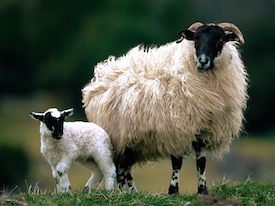 So you might have heard about two female students in Pretoria who recently painted their faces black, dressed up as domestic workers, and padded their behinds with pillows, just in case it wasn’t clear to anyone that they were trying to look like a certain stereotype of a black woman.
So you might have heard about two female students in Pretoria who recently painted their faces black, dressed up as domestic workers, and padded their behinds with pillows, just in case it wasn’t clear to anyone that they were trying to look like a certain stereotype of a black woman.
Thanks to the provocations of inane commentary on social media, a whole bunch of big names in atheism, humanism and the like now have too, and they’re consistently as bewildered as I am that people want to try and justify this idiocy.
They’re hearing about it because I’m at the World Humanist Congress in Oxford, and whenever someone asks me about South Africa, I’m currently telling them about this incident and what some responses to it tells us about how clueless some South Africans seem to be about race, and how simplistic views on free speech can end up (even if unintentionally) supporting racist attitudes.
The easy thing (for me) about the blackface case is this: I don’t think it should be illegal to be an idiot of this sort. I’m even reluctant to agree that “hate speech” is an easy enough category to recognise, and that – even if it can be recognised – that it should be illegal. This is because I’m broadly in support of J.S. Mill’s famous defence of free speech, and think that hearing hurtful things is often part of the price that individuals have to pay for society to flourish.
That’s no comfort to the person hearing the hurtful things, I know – and I also know that middle-class white males like me are seldom, if ever, the ones hearing the hurtful things. Which is why I want to remind those of you who think that “free speech” is sufficient to excuse, if not condone, the blackface incident of Isiah Berlin’s essay entitled “Two concepts of liberty”, with its reminder that negative liberties – in short, free speech as in your right to be free from my stopping you from speaking – should be contemplated alongside positive liberties.
Again, in summary, positive liberties amount to enabling conditions for being free at all – we can imagine having opportunities to speak: access to media, education, the requisite cultural capital and confidence, the absence of the fear of being mocked or derided for what one might have to say, or for how you’re dressed, or your skin colour, sex, sexual orientation and/or preferences, etc.
In other words, positive liberties amount to a bunch of the things that structural racism has compromised for the vast majority of the South African population (black South Africans), and enhanced for a small proportion of us, the white South Africans.
When someone suggests that white students wearing blackface does not impinge on anyone’s liberty, they aren’t taking the positive liberty aspect into account. They are instead relying on an understanding of rights that is technical, rather than one involving substantive rights.
Because even though we’d (well, at least I’d) like to live on a planet where we don’t have any uncontrolled or instinctive reactions to people based on arbitrary characteristics like race, we don’t live in that world yet – and black South Africans (not only South Africans – black humans) are victims of more discrimination than white ones are.
When you make a “joke” that references that discrimination, it’s likely to hurt. If you point out that “you should just get over it”, that’s likely to hurt too, because it’s callous, and because it ignores how difficult it is to just “get over” hurtful things. We all know this at least on some level, whether it’s the minor sort – perhaps being betrayed by a trusted friend – or something more significant like, say, generations of oppression alongside still living in a world that seems to ignore that oppression.
Freedom of speech isn’t the only thing that matters. It matters enough that I don’t want to ban your offensive speech – enough that I think it would be a very bad idea to do so. But it doesn’t matter enough that we can use it as a way to excuse that fact that some behaviour is inexcusable, even if it is legal.
Whether or not the women in question knew how offensive their actions were, this is no time to be making excuses for them.

